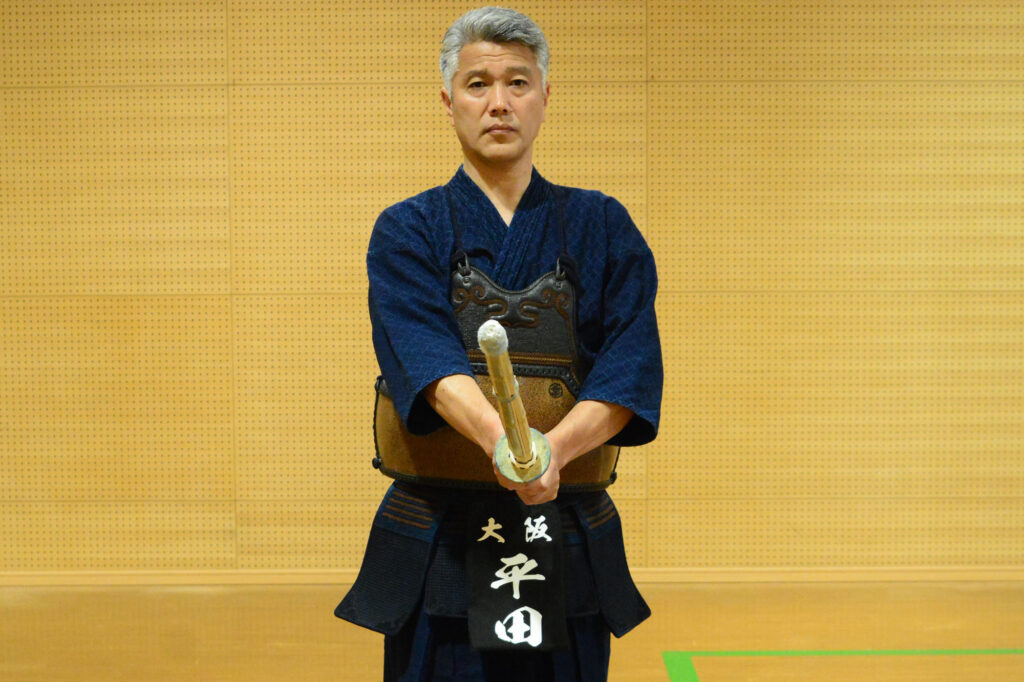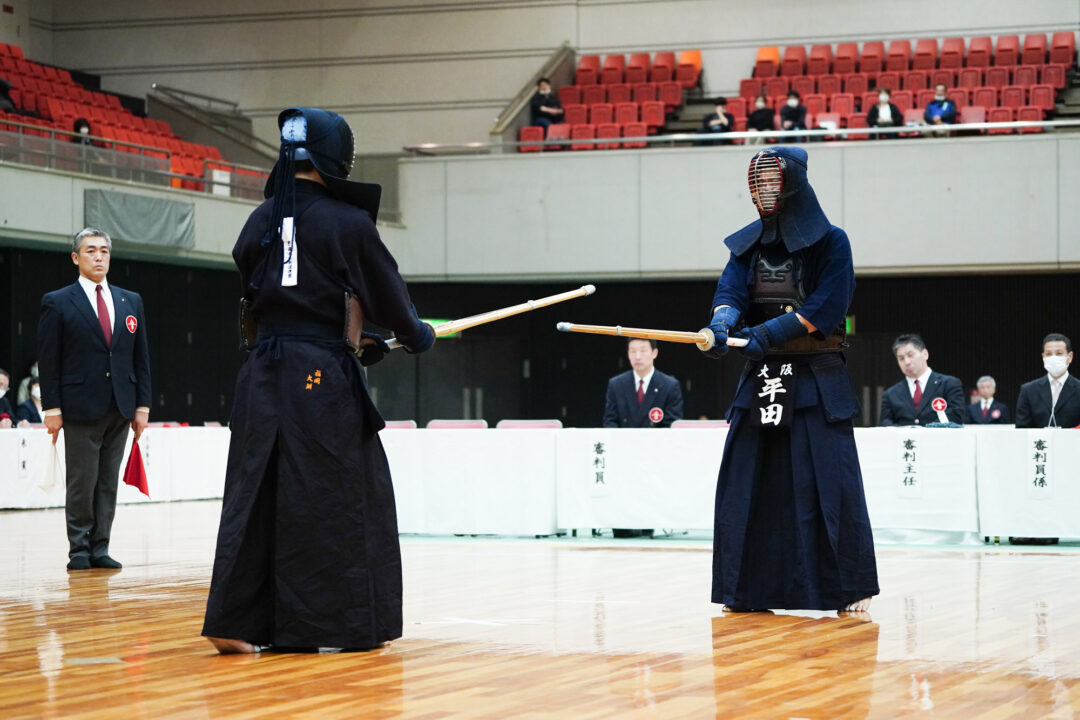2024.10 KENDOJIDAI
Translation: Pepijn Boomgaard
Hirata, who has been at the forefront of Kendo, aims for a Kendo in which he achieves Aiki and uses his opponent. To achieve this, it is necessary to devise ways to break down and draw out the opponent. He explained how he uses the left foot for this purpose.
Hirata Hiroaki (Kyoshi 8th Dan)

I am currently teaching novice Kendo students at the Osaka Prefectural Police Academy. Most of them have no Kendo experience, but their morale is high and I’m often surprised by their willingness to learn. Here, I am often made aware of the things I have not yet achieved, and I practice while learning from them.
I passed the 8th Dan examination in 2019. This was 6 years ago, when I was 47 years old. In the process of taking this examination, I became aware that Kendo is more about Aiki than pressuring and breaking down the opponent at will, and I started to learn how to use my feet when pressuring and when inviting the opponent to attack. Also, in the past, my Kendo was mainly about pressuring and breaking down my opponent, and then striking. As I got older, this alone was no longer effective against my opponents. It became necessary to draw out my opponent or make them stop moving.
This makes it necessary to be creative with the way you use your feet. After assuming both you and your opponent have assumed Kamae, the position of the left foot is important for taking the initiative. Ideally, the left foot is ready to strike at any moment, and for this reason it is important how you position your left foot and left hand in an advantageous position.
In order to maintain an advantageous foot position, the movements of the left foot must not be detected by the opponent. If you are not careful when entering a Maai that is advantageous for you, your opponent will detect it and deal with your attack or counter it with Oji-waza. This is when I became aware of how to enter my range.
Therefore, I have learned to be careful not to strike selfishly, as I used to do when I was younger. I reflected on the fact that I had missed good striking opportunities by striking selfishly, so at my third time taking the exam (which I passed), I paid particular attention to being patient, and I entered the Tachiai determined that if the opponent did not move, I would not attack either.
I think this was the difference between my first two tries, in which I showed my own strength, and the third try, in which I was conscious of drawing out my opponent through Aiki and cutting them down.
A Kamae in which the left foot is in place
The rest of this article is only available for Kendo Jidai International subscribers!


